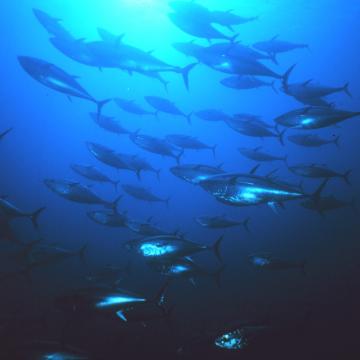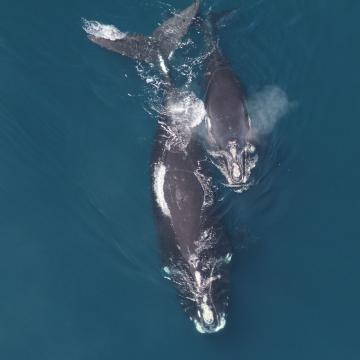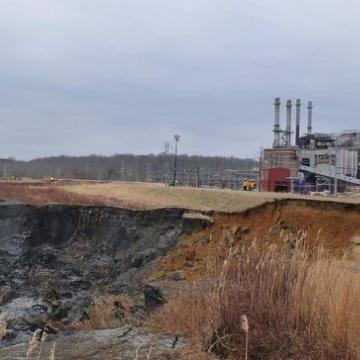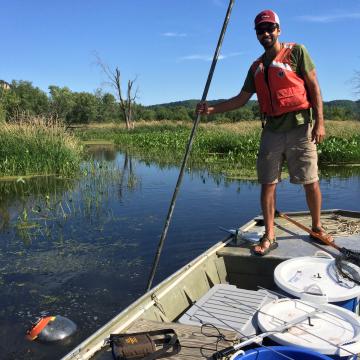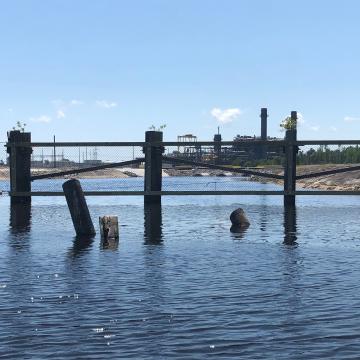-
NewsScientists at Duke University’s Marine Geospatial Ecology Lab and other leading marine research institutions worldwide have created an open-access online database that maps the movements of migratory species through the open ocean.
-
NewsAs new moms, North Atlantic right whales tone down their underwater vocalizations and “whisper” to their young calves to avoid attracting predators, a new study by scientists at Syracuse University, Duke University and NOAA Fisheries’ Northeast Fisheries Center finds.
-
NewsLocal conservation can boost the climate resilience of coastal ecosystems, species and cities and buy them precious time in their fight against sea-level rise, ocean acidification and warming temperatures, a new paper by scientists at Duke University and Fudan University suggests.
-
NewsWith the Environmental Protection Agency (EPA) poised to loosen coal ash rules for dry onsite storage and large fill projects, a new study from Duke University finds that leaving those contaminants exposed may significantly heighten the risk of toxic contamination to nearby soil and waterways.
-
NewsIn his newest book, Sea Level Rise: A Slow Tsunami on America’s Shores, Orrin Pilkey paints an eye-opening picture of the impacts sea level rise will have on the United States by the end of the 21st century.
-
NewsJoseph S. Ramus, professor emeritus at Duke University’s Nicholas School of the Environment, has been awarded the Order of the Longleaf Pine, one of the highest civilian honors the State of North Carolina bestows.
-
NewsOrganisms floating in currents beneath a river’s surface are exposed to far less sunlight than scientists previously believed, and the light that does reach them is mostly sporadic and short-lived, a new Duke University-led study shows.
-
NewsCoal ash solids found in sediments collected from Sutton Lake in 2015 and 2018 suggest the eastern North Carolina lake has been contaminated by multiple coal ash spills, most of them apparently unmonitored and unreported until now.
-
NewsTropical and subtropical fish are taking up residence on shipwrecks and other sunken structures off the North Carolina coast. This pattern may continue or even accelerate in coming years given predictions of warming oceans under climate change, a new study co-led by Duke University scientists suggests.
